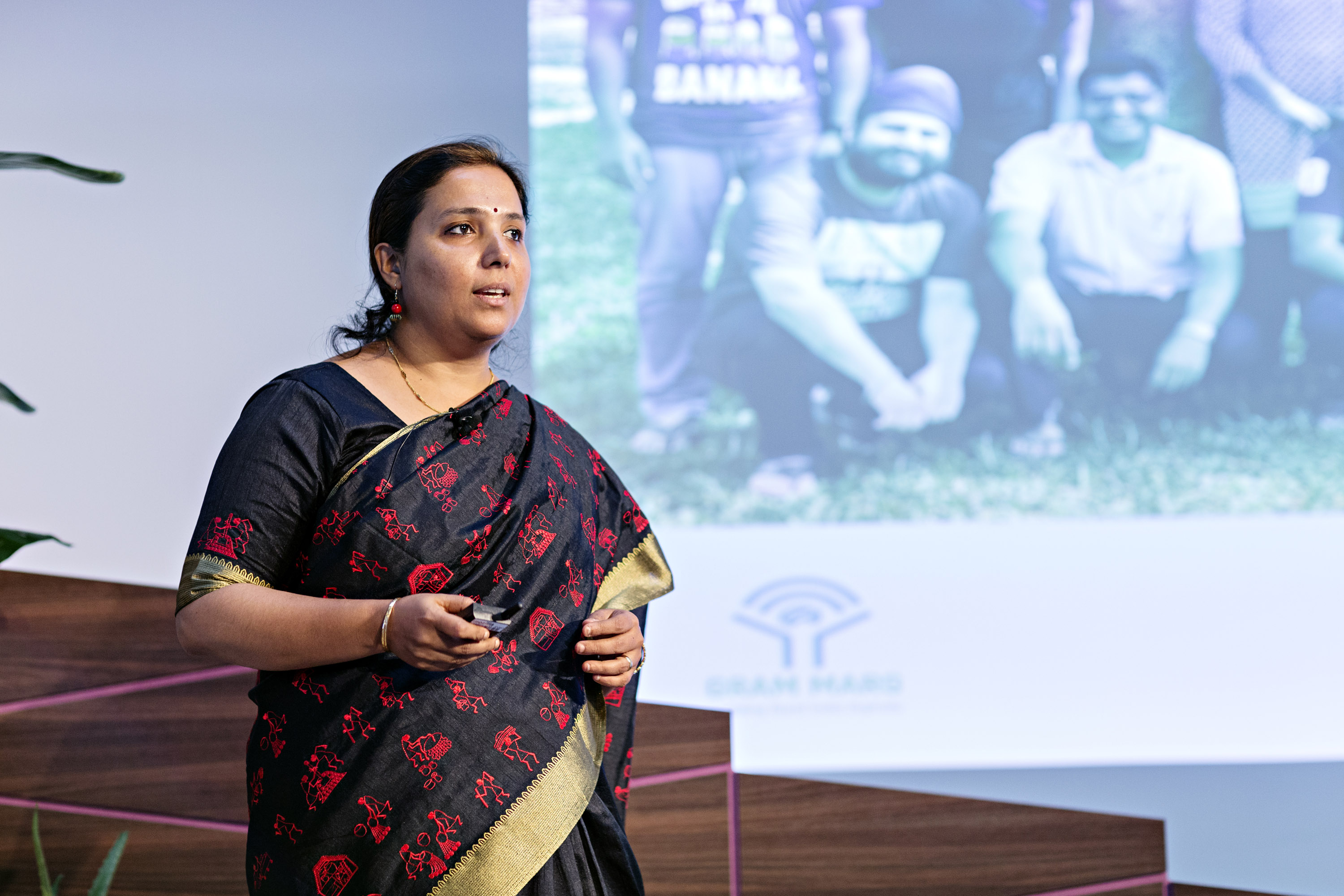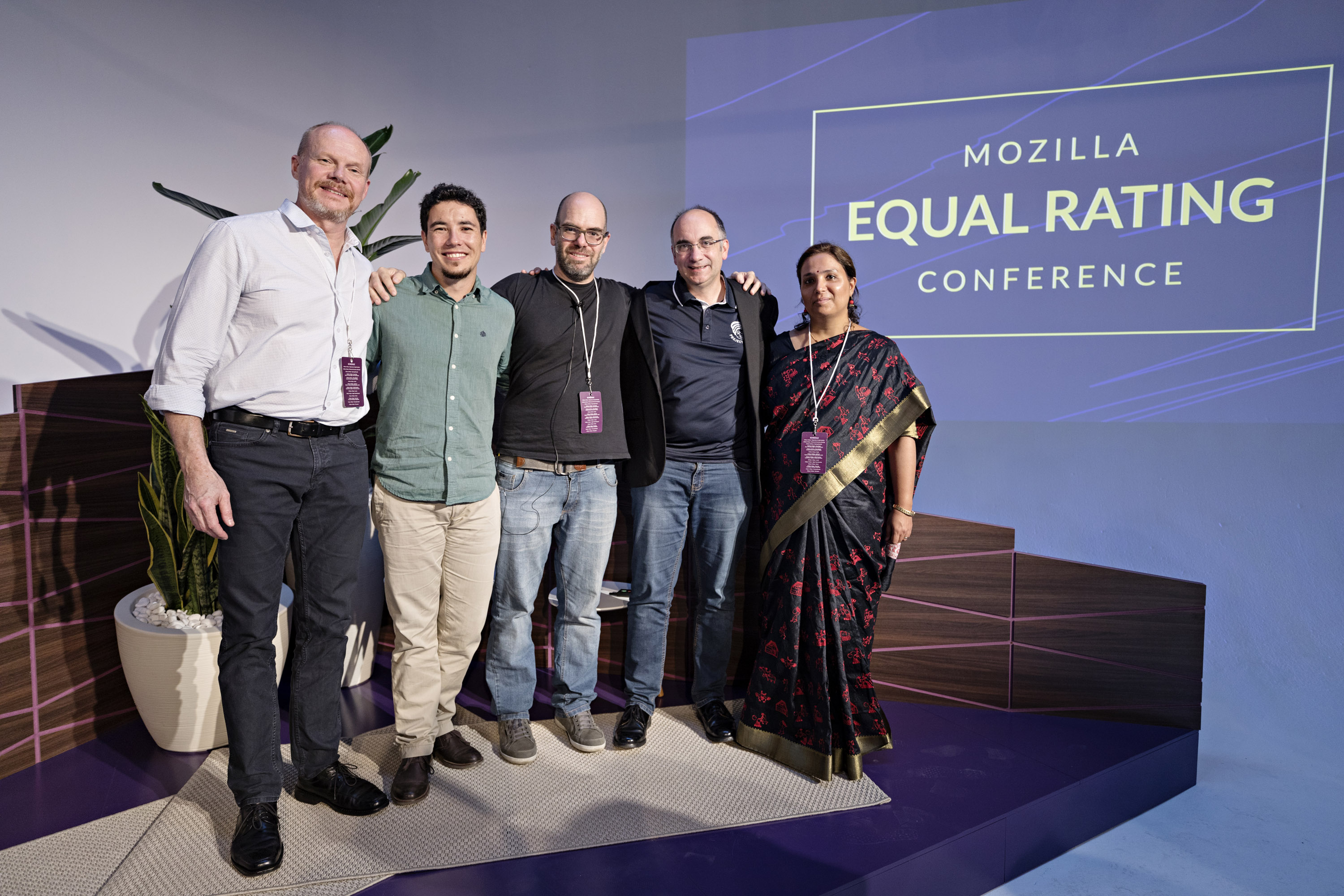Six months ago, we created the Equal Rating Innovation Challenge to add an additional dimension to the important work Mozilla has been leading around the concept of “Equal Rating.” In addition to policy and research, we wanted to push the boundaries and find news ways to provide affordable access to the Internet while preserving net neutrality. An open call for new ideas was the ideal vehicle.
An Open and Engaging Process
The Equal Rating Innovation Challenge was founded on the belief that reaching out to the local expertise of innovators, entrepreneurs, and researchers from all around the world would be the right way for Mozilla to help bring the power of the Internet to the next billion and beyond. It has been a thrilling and humbling experience to see communities engage, entrepreneurs conceive of new ideas, and regulatory, technology, and advocacy groups start new conversations.
Through our Innovation Challenge website, equalrating.com, in webinars, conferences, and numerous community events within the six week submission period, we reached thousands of people around the world. Ultimately, we received 98 submissions from 27 countries, which all taken together demonstrates the viability and the potential of the Equal Rating approach. Whereas previously many people believed providing affordable access was the domain of big companies and government, we are now experiencing a groundswell of entrepreneurs and ideas celebrating the power of community to bring all of the Internet to all people.
Our diverse expert Judges selected five teams as semifinalists in January. Mozilla staff from around the world provided six weeks of expert mentorship to help the semifinalists hone their projects, and on 9 March at our Equal Rating Conference in New York City, these teams presented their solutions to our panel of Judges. In keeping with Mozilla’s belief in openness and participation, we then had a one-week round of online public voting, the results of which formed part of the Judges’ final deliberation. Today, we are delighted to share the Judges’ decisions on the Equal Rating Innovation Challenge winners.
The Winners
With an almost unanimous vote, the Overall Winner of the Equal Rating Innovation Challenge, receiving US$125,000 in funding, is Gram Marg Solution for Rural Broadband. This project is spearheaded by Professor Abhay Karandikar, Dean (Faculty Affairs) and Institute Chair Professor of Electrical Engineering and Dr Sarbani Banerjee Belur, Senior Project Research Scientist, at Indian Institute of Technology (IIT) Bombay in Mumbai, India.

Dr Sarbani Banerjee Belur (India) presenting Gram Marg Solution for Rural Broadband at Mozilla’s Equal Rating Conference in New York City
Gram Marg, which translates as “roadmap” in Hindi, captured the attention of the Judges and audience by focusing on the urgent need to bring 640,000 rural villages in India online. The team reinforced the incredible potential these communities could achieve if they had online access to e-Governance services, payment and financial services, and general digital information. In order to close the digital divide and empower these rural communities, the Gram Marg team has created an ingenious and “indigenous” technology that utilizes unused white space on the TV spectrum to backhaul data from village wifi clusters to provide broadband access (frugal 5G).
The team of academics and practitioners have created a low-cost and ruggedized TV UHF device that converts a 2.4 Ghz signal to connect villages in even the most difficult terrains. Their journey has been one of resilience and perseverance as they have deployed their solution in 25 pilot villages, all while reducing costs, size, and perfecting their solution. This top prize of the Innovation Challenge is awarded to a solution the Judges recognize as creating a robustly scalable solution – Gram Marg is both technology enabler and social partner, and delivered beyond our hopes.
“All five semifinalists were equally competitive and it was really a challenge to pitch our solution among them. We are humbled by the Judges’ decision to choose our solution as the winner,” Professor Karandikar told us. “We will continue to improve our technology solution to make it more efficient. We are also working on a sustainable business model that can enable local village entrepreneurs to deploy and manage access networks. We believe that a decentralized and sustainable model is the key to the success of a technology solution for connecting the unconnected.”
As “Runner-Up” with a funding award of US$75,000, our Judges selected Afri-Fi: Free Public WiFi, lead by Tim Human (South Africa). The project is an extension of the highly awarded and successful Project Isizwe, which offers 500MB of data for free per day, but the key goal of this project is to create a sustainable business model by linking together free wifi networks throughout South Africa and engaging users meaningfully with advertisers so they can “earn” free wifi.
The team presented a compelling and sophisticated way to use consumer data, protect privacy, and bolster entrepreneurship in their solution. “The team has proven how their solution for a FREE internet is supporting thriving communities in South Africa. Their approach towards community building, partnerships, developing local community entrepreneurs and inclusivity, with a goal of connecting some of the most marginalized communities, are all key factors in why they deserve this recognition and are leading the FREE Internet movement in Southern Africa”, concluded Marlon Parker, Founder of Reconstructed Living Labs, on behalf of the jury.
Finally, the “Most Novel” award worth US$30,000 goes to Bruno Vianna (Brazil) and his team from the Free Networks P2P Cooperative. Fueled by citizen science and community technology, this team is building on the energy of the free networks movement in Brazil to tackle the digital divide. Rather than focusing on technology, the Coop has created a financial and logistical model that can be tailored to each village’s norms and community. The team was able to experiment more adventurously with ways to engage communities through “barn-raising” group activities, deploying “open calls” for leadership to reinforce the democratic nature of their approach, and instituting a sense of “play” for the villagers when learning how to use the equipment. The innovative way the team deconstructed the challenge around empowering communities to build their own infrastructure in an affordable and sustainable way proved to be the deciding factor for the Judges.

From left to right: Steve Song (Canada), Freemium Mobile Internet (FMI), Dr Carlos Rey-Moreno (South Africa), Zenzeleni “Do it for yourselves” Networks (ZN), Bruno Vianna (Brazil), Free Networks P2P Cooperative, Tim Genders (South Africa), Afri-Fi: Free Public WiFi, Dr Sarbani Banerjee Belur (India), Gram Marg Solution for Rural Broadband
Enormous thanks to all who participated in this Innovation Challenge through their submissions, engagement in meetups and events, as well as to our expert panel of Judges for their invaluable insights and time, and to the Mozilla mentors who supported the semifinalists in advancing their projects. We also want to thank all who took part in our online community voting. During the week-long period, we received almost 6,000 votes, with Zenzeleni and Gram Marg leading as the top two vote-getters.
Mozilla started this initiative because we believe in the power of collaborative solutions to tackle big issues. We wanted to take action and encourage change. With the Innovation Challenge, we not only highlighted a broader set of solutions, and broadened the dialogue around these issues, but built new communities of problem-solvers that have strengthened the global network of people working toward connecting the next billion and beyond.
At Mozilla, our commitment to Equal Rating through policy, innovation, research, and support of entrepreneurs in the space will continue beyond this Innovation Challenge, but it will take a global community to bring all of the internet to all people. As our esteemed Judge Omobola Johnson, the former Communication Technology Minister of Nigeria and partner at venture capital fund TLcom, commented: “it’s not about the issue of the unconnected, it’s about the people on the ground who make the connection.” We couldn’t agree more!
Visit us on equalrating.com, join our community, let your voice be heard. We’re all in this together – and today congratulate our five final teams for their tremendous leadership, vision, and drive. They are the examples of what’s best in all of us!

























